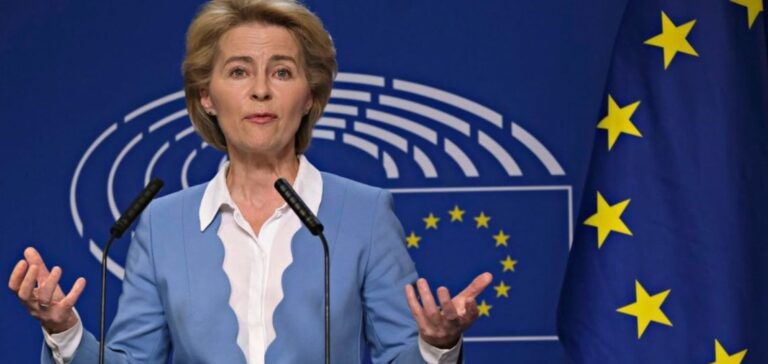Brussels has unveiled its new roadmap for the competitiveness of the European Union, an initiative launched by Ursula von der Leyen. This plan comes in the wake of the growing gap between the EU and global leaders, such as the United States and China, who continue to push ahead with innovation and energy production.
A Response to Global Economic Pressures
In light of protectionist policies from Donald Trump and rapid investments in artificial intelligence and clean energy in China, the EU aims to reposition itself in order to avoid economic decline. This strategic document, called the “competitiveness compass,” includes ambitious energy reforms, such as cutting costs for businesses and reducing administrative complexities.
Simplifying Regulations and Supporting the Energy Transition
The plan seeks to simplify regulations that burden companies, particularly those related to vigilance regarding subcontractors. These changes are part of a broader goal to streamline processes while continuing the EU’s environmental commitments under the Green Deal. Ursula von der Leyen reaffirmed the EU’s commitment to achieving climate neutrality by 2050, despite the economic adjustments.
At the same time, the European Commission plans to ramp up investments in renewable energy while recognizing the need for a diversified energy transition that also includes nuclear power. “We need to further develop our renewable energy production, and in some countries, nuclear power,” said the Commission President at Davos, noting a shift in the EU’s energy policy.
Supporting Businesses Amid Rising Energy Costs
The war in Ukraine has exacerbated the energy crisis in Europe, pushing energy prices to record levels. With the loss of Russian gas supplies, the EU is looking to reduce its dependence on fossil fuels. As part of this effort, the Commission has proposed several measures to secure energy supplies, including long-term electricity purchase contracts and investments in energy storage and transportation.
Moreover, “targeted and simplified” public subsidies will be implemented to encourage the green transition of industries. The goal is to accelerate the shift to low-carbon industrial processes, with a particular focus on the 100 most polluting industrial sites, which account for more than half of Europe’s industrial emissions.
More Flexibility on Competition Rules and Strategic Resources
The European Commission also aims to relax certain competition rules to allow the consolidation of large European companies capable of competing on the global market. This revision is particularly needed in critical sectors such as energy, raw materials, and technology.
Regarding strategic resources, the EU intends to diversify its supply chains and reduce dependence, particularly on China, by facilitating mining operations within its borders. Rare metal extraction projects have already been launched, despite local environmental concerns.
The Challenge of the Single Market and Energy Competitiveness
Europe already has a single market in key sectors such as aerospace and automotive, but energy and telecommunications are still fragmented due to differing national regulations. According to the Commission, the single market for energy and finance has “blind spots,” which hinder innovation and the competitiveness of European companies in comparison to their American and Chinese counterparts. The European Commission has called for an expansion of the single market to allow companies to achieve economies of scale and compete on the global stage.






















